Physical Activity Researcher
Hello and Welcome to Physical Activity Researcher Podcast! Physical Activity Researcher Podcast is the source of the latest research findings on all things related to physical activity, exercise, and health. World-renowned scientists and experts as guests in an informal and relaxed interview style format. New episodes on Tuesdays, Fridays, and Sundays. The podcast is for anyone who likes to learn scientific and evidence-based knowledge of physical activity, exercise, and health. Our listeners range from researchers to health and fitness professionals, and from inactive office workers to marathon runners. Podcast has several series and hosts each concentrating on different aspects of physical activity: Physical Activity Researcher Series The latest research findings in exercise physiology, biomechanics, physical education, coaching sciences, sport psychology, epidemiology, and public health. These episodes are hosted by researcher and entrepreneur Dr Olli Tikkanen. Meaningful Sport Series Meaningful Sport is dedicated to the exploration of meaning and meaningful experiences in sport and physical activity. Many studies have revealed instrumental benefits of physical activity, but is there something more to it, and how does it contribute to meaningful lives? This series is led by Associate Professor Noora Ronkainen. The series provides inspiration for exploring the meaning and value in sport and physical activity for everyone. Practitioner’s Viewpoint Series Practitioner’s Viewpoint Series has health and fitness professionals as guests. How they see sedentary behaviour and physical activity in their work? What are the best practices to promote physical activity? This series is for you if you are a Personal Trainer, Physiotherapist, Medical Doctor, Health Coach, or anyone working as a health and fitness professional. This series is lead by physiotherapist MSc Liis Kukkonen. Publishing schedule: Tuesdays: Physical Activity Researcher Series Friday: Meaningful Sport Series Sundays: Practitioner’s Viewpoint Series. + Bonus episodes and republications of past highlight episodes We hope you find value in the podcast! -Podcasting team-
Hello and Welcome to Physical Activity Researcher Podcast! Physical Activity Researcher Podcast is the source of the latest research findings on all things related to physical activity, exercise, and health. World-renowned scientists and experts as guests in an informal and relaxed interview style format. New episodes on Tuesdays, Fridays, and Sundays. The podcast is for anyone who likes to learn scientific and evidence-based knowledge of physical activity, exercise, and health. Our listeners range from researchers to health and fitness professionals, and from inactive office workers to marathon runners. Podcast has several series and hosts each concentrating on different aspects of physical activity: Physical Activity Researcher Series The latest research findings in exercise physiology, biomechanics, physical education, coaching sciences, sport psychology, epidemiology, and public health. These episodes are hosted by researcher and entrepreneur Dr Olli Tikkanen. Meaningful Sport Series Meaningful Sport is dedicated to the exploration of meaning and meaningful experiences in sport and physical activity. Many studies have revealed instrumental benefits of physical activity, but is there something more to it, and how does it contribute to meaningful lives? This series is led by Associate Professor Noora Ronkainen. The series provides inspiration for exploring the meaning and value in sport and physical activity for everyone. Practitioner’s Viewpoint Series Practitioner’s Viewpoint Series has health and fitness professionals as guests. How they see sedentary behaviour and physical activity in their work? What are the best practices to promote physical activity? This series is for you if you are a Personal Trainer, Physiotherapist, Medical Doctor, Health Coach, or anyone working as a health and fitness professional. This series is lead by physiotherapist MSc Liis Kukkonen. Publishing schedule: Tuesdays: Physical Activity Researcher Series Friday: Meaningful Sport Series Sundays: Practitioner’s Viewpoint Series. + Bonus episodes and republications of past highlight episodes We hope you find value in the podcast! -Podcasting team-
Episodes
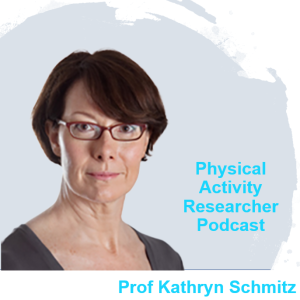
Sunday Jan 23, 2022
Sunday Jan 23, 2022
Kathryn Schmitz, PhD, MPH, is the Associate Director of Population Sciences at Penn State University College of Medicine, and, jointly, serves as Full Professor at the University of Pennsylvania's School of Medicine. Dr. Kathryn Schmitz is a leading researcher in exercise oncology - the use of exercise in cancer prevention, control and survivorship.
Her research extends from the role of physical activity in the prevention and etiology of obesity-related cancers to the usefulness of activity for rehabilitation and health promotion in cancer survivors of all cancers.
Dr. Schmitz serves on the expert panel for the YMCA/Livestrong Foundation Cancer Survivorship Collaborative, wrote the cancer survivorship section of the 2008 U.S. DHHS report of the Physical Activity Guidelines Advisory Committee, served on the ad hoc committee that developed the ACSM Cancer Exercise Trainer certification, and is the lead author of the ACSM Roundtable on Exercise for Cancer Survivors, which published guidance for exercise testing and prescription for cancer survivors in July 2010.
---
This podcast episode is sponsored by Fibion Inc. | The New Gold Standard for Sedentary Behaviour and Physical Activity Monitoring
Learn more about Fibion: fibion.com/research
---
Collect, store and manage SB and PA data easily and remotely -
Discover new Fibion SENS Motion: https://sens.fibion.com/
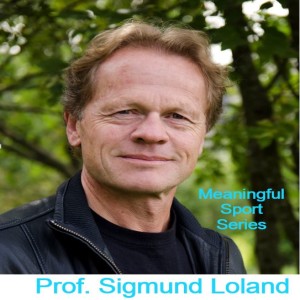
Friday Jan 21, 2022
Friday Jan 21, 2022
Why is meaning central to movement cultures, and how does it relate to ecological awareness and sustainability? Are there certain meanings and values of sport that are problematic when we are trying to move towards more sustainable movement cultures? Can we find potential for ecologization also in competitive and elite sport, which have been often considered with suspicion by eco-philosophers?
Sigmund Loland is a professor of sport philosophy and ethics at the Norwegian School of Sport Sciences (NIH), Oslo. He has published extensively in the area of sport philosophy and ethics, including questions about meaning in movement and ecological perspectives on sport.
Prof. Loland's works discussed in the episode include Morality, Medicine, and Meaning: Toward an Integrated Justification of Physical Education, Outline of an Ecosophy of Sport, and Record Sports: An Ecological Critique and a Reconstruction.
--
Time Stamps
3:00 Why is Physical Education taught in schools?
5:05 Morality, Medicine and Meaning as three justifications of PE
10:20 Can the "Meaning perspective" on PE and PA cover non-anthropocentric perspectives?
17:10 Eco-philosophy and competitive sport: is there a clash?
20:30 Why are record sports unsustainable?
26:40 What is the internal problem of sport in relation to sustainability?
--
Liked this episode? You are likely to find the episodes with Gunnar Breivik on deep ecological sport and with Simon Beames on outdoor education interesting.
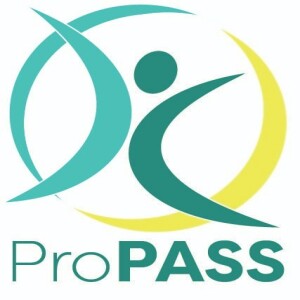
Wednesday Jan 19, 2022
Wednesday Jan 19, 2022
Analytical Techniques in Processing Physical Activity Data (Pt1) - ProPASS webinar - Dr Alex Rowlands and Dr Tatiana Plekhanova
This is audio from ProPASS ECR network webinar. The theme of this first webinar series is measurement and in this first webinar of 3, we will hear from Dr Alex Rowlands and Dr Tatiana Plekhanova on analytical techniques in processing physical activity data.
---
The Prospective Physical Activity, Sitting and Sleep consortium (ProPASS)
ProPASS is an international research collaboration platform of cohorts using thigh-worn accelerometry to explore the effects of physical activity, posture, and sleep patterns on a wide range of health outcomes. The objectives of the consortium are:
to establish a pooled data resource on physical activity, posture allocation, sleep, and health outcomes;
to develop methods for processing, harmonising, and pooling data of existing such studies;
to develop methods for collecting data for future studies (prospective harmonization);
The ultimate goal of the ProPASS consortium as a data resource is to promote collaborative individual participant and prospective meta-analyses on physical activity, posture, and sleep.
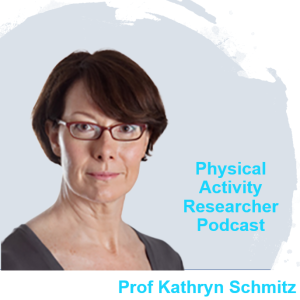
Tuesday Jan 18, 2022
Tuesday Jan 18, 2022
Kathryn Schmitz, PhD, MPH, is the Associate Director of Population Sciences at Penn State University College of Medicine, and, jointly, serves as Full Professor at the University of Pennsylvania's School of Medicine. Dr. Kathryn Schmitz is a leading researcher in exercise oncology - the use of exercise in cancer prevention, control and survivorship.
Her research extends from the role of physical activity in the prevention and etiology of obesity-related cancers to the usefulness of activity for rehabilitation and health promotion in cancer survivors of all cancers.
Dr. Schmitz serves on the expert panel for the YMCA/Livestrong Foundation Cancer Survivorship Collaborative, wrote the cancer survivorship section of the 2008 U.S. DHHS report of the Physical Activity Guidelines Advisory Committee, served on the ad hoc committee that developed the ACSM Cancer Exercise Trainer certification, and is the lead author of the ACSM Roundtable on Exercise for Cancer Survivors, which published guidance for exercise testing and prescription for cancer survivors in July 2010.
---
This podcast episode is sponsored by Fibion Inc. | The New Gold Standard for Sedentary Behaviour and Physical Activity Monitoring
Learn more about Fibion: fibion.com/research
---
Collect, store and manage SB and PA data easily and remotely -
Discover new Fibion SENS Motion: https://sens.fibion.com/
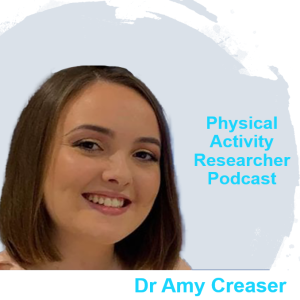
Sunday Jan 16, 2022
Sunday Jan 16, 2022
Amy has an undergraduate degree in Psychology from the University of Leeds, who undertook a work placement year at BiB in 2017, working on the ‘Primary School Years’.Amy is currently a PhD Student, working with the JU:MP team and Loughborough University.
Her PhD will focus on developing and implementing an intervention to increase physical activity in children and adolescents, using wearable activity trackers (such as Fitbits). Her PhD will take a mixed-methods approach (qualitative and quantitative methods) to investigate intervention impact and assess feasibility and acceptability of the intervention within the community.
_____________________
This podcast episode is sponsored by Fibion Inc. | The New Gold Standard for Sedentary Behaviour and Physical Activity Monitoring
Learn more about Fibion: fibion.com/research
---
Collect, store and manage SB and PA data easily and remotely -
Discover new Fibion SENS Motion: https://sens.fibion.com/
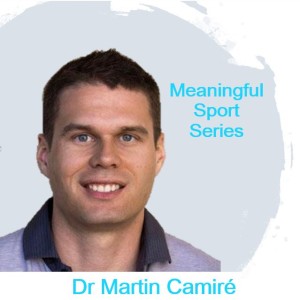
Friday Jan 14, 2022
Friday Jan 14, 2022
Life skills has been an important concept for sport researchers interested in understanding the potential of sport to foster positive youth development. In this second part of our conversation with Dr Martin Camiré, we explore why it is necessary to rethink some of the assumptions associated with life skills, and how postqualitative inquiry can help us extend our understanding of life skills and learning in sport more broadly. We also discuss the potential of 'postsport' physical cultures to foster different kind of learning that might not always be 'positive' but still important for becoming who we are.
Our conversation draws on Martin's recent article in Qualitative Research in Sport, Exercise and Health titled A move to rethink life skills as assemblages: a call to postqualitative inquiry.
Dr Martin Camiré is an Associate Professor at the University of Ottawa whose work has made a substantial contribution to our knowledge base on sport-based positive youth development and life skills. His recent work has focused on reimagining life skills through a social justice lens, as well as exploring the concept through postqualitative inquiry.
--
Timestamps:
2:00 Engaging in risky research
7:40 Precarious work in academia
9:45 Using postqualitative inquiry to rethink life skills
10:35 Going beyond the discursive
13:00 Why the notion of life skill transfer needs to be abandoned
15:35 You cannot hit the same tennis shot twice
20:20 Learning as becoming
25:30 Imagining life skills through a social justice lens
31:45 Is life skills still a useful concept or should we move on to something else?
38:55 Learning and becoming in postsport physical cultures
--
Liked this episode? You might also find the episode with Greg Dryer interesting.
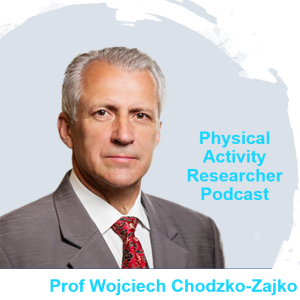
Tuesday Jan 11, 2022
Tuesday Jan 11, 2022
Prof. Wojtek Chodzko Zajko is the Shahid and Ann Carlson Khan Endowed Professor of Applied Health Sciences and Dean of the Graduate College at the University of Illinois. In his role as Dean of the Graduate College, Chodzko-Zajko leads campus efforts in setting policies, defining standards, and enabling excellence in graduate programs, graduate research, and graduate student life. With graduate programs in more than 100 disciplinary areas, the Graduate College at the University of Illinois fosters a vibrant campus community of scholars.
In his professional life, Chodzko Zajko remains active in the dissemination of information about healthy aging through his work on several major professional advisory boards. He served on the World Health Organization committee that developed the WHO Guidelines for Physical Activity among Older Persons. Chodzko-Zajko was the Principal Investigator for a series of projects charged with developing a national strategy for promoting healthy aging in the USA. He currently serves on the Executive Committee of the AAU Association of Graduate Schools and on the Board of Directors of the GRE. Chodzko-Zajko was the founding Editor of the Journal of Aging and Physical Activity from 1992-2002. He served as Chairman of the Board of Directors of the American Council on Exercise and is a Past-President of the American Kinesiology Association. Prior to assuming his current position, Chodzko-Zajko served for many years as the head of the department of Kinesiology and Community Health at the University of Illinois at Urbana-Champaign.
This podcast episode is sponsored by Fibion Inc. | The New Gold Standard for Sedentary Behaviour and Physical Activity Monitoring
Learn more about Fibion: fibion.com/research
---
Collect, store and manage SB and PA data easily and remotely -
Discover new Fibion SENS Motion: https://sens.fibion.com/
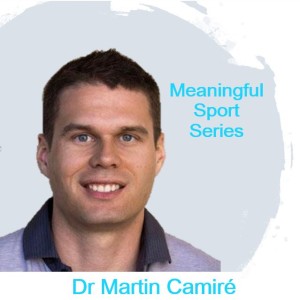
Friday Jan 07, 2022
Friday Jan 07, 2022
The idea that sport contributes to positive youth development and helps to develop life skills has a prominent role in our societies and the research discourse in sport psychology. These ideas however, are not without critiques, based on conceptual and ethical arguments as well as empirical findings. Can we say that the research topic is in some sort of crisis? Do we need to rethink some of the ideas surrounding life skills, and where might we go from here?
This episode with Dr Martin Camiré explores the critiques of life skills and how Martin and his colleagues have recently made substantial efforts to destabilise the neoliberal assumptions and power dynamics associated with life skills. Our conversation draws on the recent article by Martin and his team titled Reimagining positive youth development and life skills in sport through a social justice lens.
Dr Martin Camiré is an Associate Professor at the University of Ottawa whose work has made a substantial contribution to our knowledge base on sport-based positive youth development and life skills. His recent work has focused on reimagining life skills through a social justice lens, as well as explored life skills through postqualitative inquiry.
--
Timestamps:
7:22 Positive development is not an automatic outcome of sport participation
11:10 Are positive youth development interventions in sport achieving their goals?
14:45 What's wrong with life skills in sport as we know them today?
21:30 Reimagining life skills through a social justice lens
27:35 What else can we learn from sport in addition to life skills?
30:35 Does research always need to have practical application?
--
Liked this episode? You might also find the episode with Greg Dryer interesting.
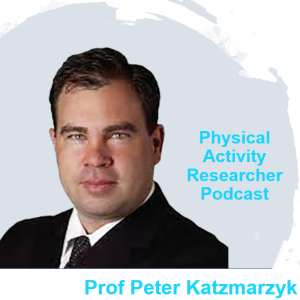
Tuesday Jan 04, 2022
Tuesday Jan 04, 2022
Dr. Katzmarzyk is Professor and Associate Executive Director for Population and Public Health Sciences at the Pennington Biomedical Research Center where he holds the Marie Edana Corcoran Endowed Chair in Pediatric Obesity and Diabetes. Dr. Katzmarzyk is an internationally recognized leader in the field of physical activity and obesity, with a special emphasis on pediatrics and ethnic health disparities. He has over two decades of experience in conducting large clinical and population-based studies in children and adults.
He has published his research in more than 580 scholarly journals and books, and has delivered over 210 invited lectures in 16 countries. In addition to his research, Dr. Katzmarzyk plays a leading role in national health advocacy initiatives. He chairs the Research Advisory Committee for the U.S. Report Card on Physical Activity for Children and Youth for the National Physical Activity Plan Alliance. He also recently served on the 2018 U.S. Physical Activity Guidelines Advisory Committee for the U.S. Department of Health and Human Services and the World Health Organization Guideline Development Group for the WHO 2020 Guidelines on Physical Activity and Sedentary Behavior in Youth, Adults and Older Adults. In 2019 and 2020, Dr. Katzmarzyk was recognized as a highly cited researcher by the Web of Science.
_____________________
This podcast episode is sponsored by Fibion Inc. | The New Gold Standard for Sedentary Behaviour and Physical Activity Monitoring
Learn more about Fibion: fibion.com/research
---
Collect, store and manage SB and PA data easily and remotely -
Discover new Fibion SENS Motion: https://sens.fibion.com/
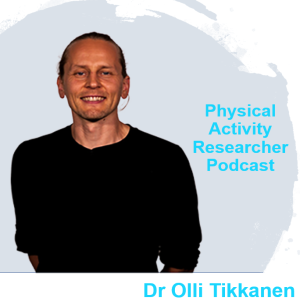
Friday Dec 31, 2021
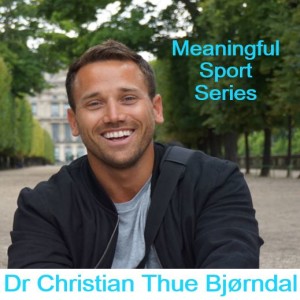
Friday Dec 31, 2021
Friday Dec 31, 2021
Youth athletes quickly learn that they have to perform certain identities - as hardworking, dedicated, and always ready to train more - to maximise their chances of staying on the athlete development pathway and 'making it' to senior sport. What are the implications of the 'always more' culture on their being-in-the-world and meaningful experience in sport?
Why should we consider the term opting out instead of dropping out from sport? What other cultural narratives and discourses should we challenge to open up more diverse ways of experiencing and being in the sport world?
Dr Christian Thue Bjørndal is an Associate Professor at the Department of Sport and Social Science at the Norwegian School of Sport Sciences. Christian’s work has focused on interdisciplinary perspectives on athlete learning and development with a special emphasis on sociocultural perspectives and ecological dynamics. In the podcast, we have an opportunity to look into some of the latest work he has produced on these topics.
---
Liked this episode? You are likely to find these previous conversations interesting:
Tim Jones on social and emotional learning in football academies
Francesca Champ on balancing performance and well-being in football academies
Colum Cronin on caring coaching.
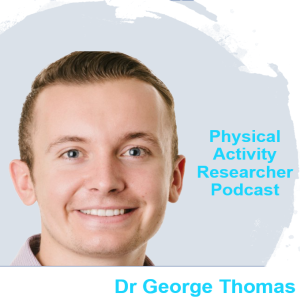
Tuesday Dec 28, 2021
Deep Dive Into Screen Use among Children - Dr George Thomas (Pt1)
Tuesday Dec 28, 2021
Tuesday Dec 28, 2021
George Thomas completed his BSc at the University of Gloucestershire in Sport and Exercise Sciences, and his MSc at the University of Bristol in Physical Activity, Nutrition and Public Health. His graduate work focused on promoting physical activity in Further Education students. He has recently completed his PhD at the University of Southern Queensland, Australia, focused on understanding contemporary screen use among children and adolescents.
_____________________
This podcast episode is sponsored by Fibion Inc. | The New Gold Standard for Sedentary Behaviour and Physical Activity Monitoring
Learn more about Fibion: fibion.com/research
---
Collect, store and manage SB and PA data easily and remotely -
Discover new Fibion SENS Motion: https://sens.fibion.com/
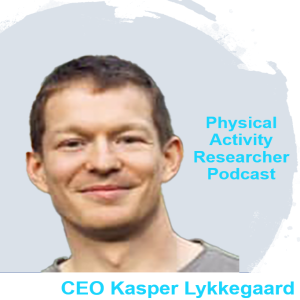
Sunday Dec 26, 2021
Sunday Dec 26, 2021
Kasper Lykkegaard is co-founder and CEO of the company SENS INNOVATION ApS specialised in developing small, low power and flexible sensing devices for medical purposes.
---
This podcast episode is sponsored by Fibion Inc. | The New Gold Standard for Sedentary Behaviour and Physical Activity Monitoring
Learn more about Fibion: fibion.com/research
---
Collect, store and manage SB and PA data easily and remotely -
Discover new Fibion SENS Motion: https://sens.fibion.com/

Friday Dec 24, 2021
Friday Dec 24, 2021
Today we explore sport coaching knowledge from a critical socio-cultural perspective and ask question about what implications it can have for youth athletes' experiences and meanings assigned to sport, both on personal and collective level.
It is somewhat paradoxical that although significant advances have been made in scientific understandings in the areas of sport coaching and sport medicine, sports injuries remain at a high level in many sports. Does it have to do with the lack of integration of different disciplinary knowledge bases, the power imbalances inherent in the coach-athlete relationship, and/or the need for youth athletes to perform a certain type of identity to maximise their chances to continue in the talent pathway?
Dr Christian Thue Bjørndal is an Associate Professor at the Department of Sport and Social Science at the Norwegian School of Sport Sciences. Christian’s work has focused on interdisciplinary perspectives on athlete learning and development with a special emphasis on sociocultural perspectives and ecological dynamics. In the podcast, we have an opportunity to look into some of the latest work he has produced on these topics.
---
Liked this episode? You are likely to find these previous conversations interesting:
Tim Jones on social and emotional learning in football academies
Francesca Champ on balancing performance and well-being in football academies
Colum Cronin on caring coaching
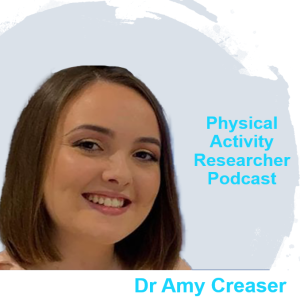
Tuesday Dec 21, 2021
Tuesday Dec 21, 2021
Amy has an undergraduate degree in Psychology from the University of Leeds, who undertook a work placement year at BiB in 2017, working on the ‘Primary School Years’.Amy is currently a PhD Student, working with the JU:MP team and Loughborough University. Her PhD will focus on developing and implementing an intervention to increase physical activity in children and adolescents, using wearable activity trackers (such as Fitbits). Her PhD will take a mixed-methods approach (qualitative and quantitative methods) to investigate intervention impact and assess feasibility and acceptability of the intervention within the community.
_____________________
This podcast episode is sponsored by Fibion Inc. | The New Gold Standard for Sedentary Behaviour and Physical Activity Monitoring
Learn more about Fibion: fibion.com/research
---
Collect, store and manage SB and PA data easily and remotely -
Discover new Fibion SENS Motion: https://sens.fibion.com/
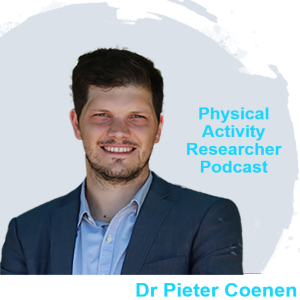
Sunday Dec 19, 2021
Sunday Dec 19, 2021
In 2009 Pieter Coenen obtained my MSc degree at the faculty of human movement sciences (VU University, Amsterdam) after which Pieter Coenen started his PhD program. In his PhD project he studied the aetiology of musculoskeletal pain in workers, which ultimately resulted in his thesis ‘On the origin of back pain’. In the meantime, he successfully finalized his epidemiological education, granting him the official title of ‘Epidemiologist’. He currently hold a post-doctoral research position at the department of Public and Occupational Health (EMGO Institute for Health and Care Research, VU University Medical Center), which he combine with and adjunct research position at Curtin University (Perth, Australia).
From 2014 to 2016, he has been working as post-doctoral researcher at Curtin University (Perth, Australia). In this period, he has expanded my knowledge on human physical (in)activity, prevention and management of musculoskeletal pain and epidemiological research methodologies.His research focus is on the promotion of healthy work environments, in particular from the perspective of physical (in)activity and workload. His research includes epidemiological studies on the health consequences of work-related biomechanical exposure and physical (in)activity at work, development of risk assessment tools for (occupational) safety and health, work-site interventions for healthy work environments and systematic reviews on health effects of work-related factors and interventions.
_____________________
This podcast episode is sponsored by Fibion Inc. | The New Gold Standard for Sedentary Behaviour and Physical Activity Monitoring
Learn more about Fibion: fibion.com/research
---
Collect, store and manage SB and PA data easily and remotely -
Discover new Fibion SENS Motion: https://sens.fibion.com/
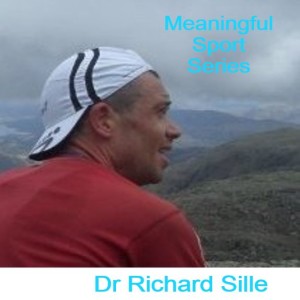
Friday Dec 17, 2021
Friday Dec 17, 2021
This is the second part of our conversation with Dr Richard Sille on "risk sports" and the search for authentic living. The focus is on what is often viewed as the most dangerous sporting event in the world: the Isle of Man TT. We hear about TT riders stories as communicated in research interviews and autobiographies and discuss retirement and injury as threats to these athletes' identities.
The conversation draws on the research article Experiences leading elite motorcycle road racers to participate at the Isle of Man Tourist Trophy (TT): an existential perspective.
Dr Richard Sille holds a professional doctorate from Liverpool John Moores University. Currently, he works as a Sport & Performance Psychologist at the Isle of Man Sport and as a sessional lecturer at the University College Isle of Man.
You can follow Rich on Twitter @RichSille and find out more about his work on his homepage.
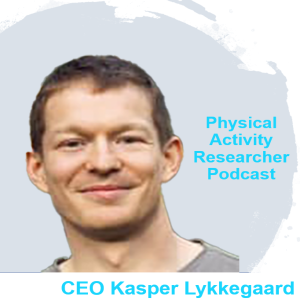
Thursday Dec 16, 2021
Thursday Dec 16, 2021
Kasper Lykkegaard is co-founder and CEO of the company SENS INNOVATION ApS specialised in developing small, low power and flexible sensing devices for medical purposes.
---
This podcast episode is sponsored by Fibion Inc. | The New Gold Standard for Sedentary Behaviour and Physical Activity Monitoring
Learn more about Fibion: fibion.com/research
---
Collect, store and manage SB and PA data easily and remotely -
Discover new Fibion SENS Motion: https://sens.fibion.com/
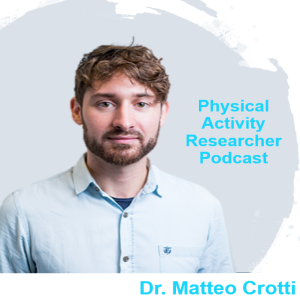
Tuesday Dec 14, 2021
Tuesday Dec 14, 2021
Dr. Matteo Crotti has got his PhD from the Liverpool John Moores University. He has been involved in various research projects concerning children’s physical activity, motor skills and health. Furthermore, he conducted a study concerning the relationship between play behaviours and motor skills in preschool children.
His early career researcher was in the field of Sports Sciences and his key research focus on physical activity promotion, physical activity assessment, physical education and coaching.
-----------------------------------------
This podcast episode is sponsored by Fibion Inc. | The New Gold Standard for Sedentary Behaviour and Physical Activity Monitoring
Learn more about Fibion: fibion.com/research
---
Collect, store and manage SB and PA data easily and remotely -
Discover new Fibion SENS Motion: https://sens.fibion.com/
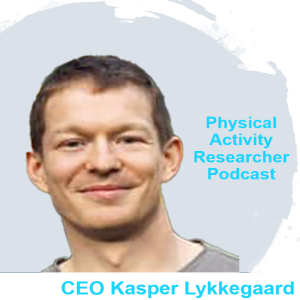
Sunday Dec 12, 2021
Sunday Dec 12, 2021
Kasper Lykkegaard is co-founder and CEO of the company SENS INNOVATION ApS specialised in developing small, low power and flexible sensing devices for medical purposes.
---
This podcast episode is sponsored by Fibion Inc. | The New Gold Standard for Sedentary Behaviour and Physical Activity Monitoring
Learn more about Fibion: fibion.com/research
---
Collect, store and manage SB and PA data easily and remotely -
Discover new Fibion SENS Motion: https://sens.fibion.com/

Friday Dec 10, 2021
Friday Dec 10, 2021
"Risk sports" are often conceived as a site for thrill-seeking and experiencing momentary highs, but is this a full picture of the meaning of these activities in people's lives? In this podcast, we focus on understanding the inside world of "risk sports" with the focus on what is often viewed as the most dangerous sporting event in the world: the Isle of Man TT.
Unsatisfied with the media portrayals of the TT riders as "adrenaline junkies", Dr Richard Sille has conducted in-depth interviews with these riders to get a more nuanced picture of their lives and what led them to compete in this event. The conversation draws on the research article Experiences leading elite motorcycle road racers to participate at the Isle of Man Tourist Trophy (TT): an existential perspective.
Dr Richard Sille holds a professional doctorate from Liverpool John Moores University. Currently, he works as a Sport & Performance Psychologist at the Isle of Man Sport and as a sessional lecturer at the University College Isle of Man.
You can follow Rich on Twitter @RichSille and find out more about his work on his homepage.
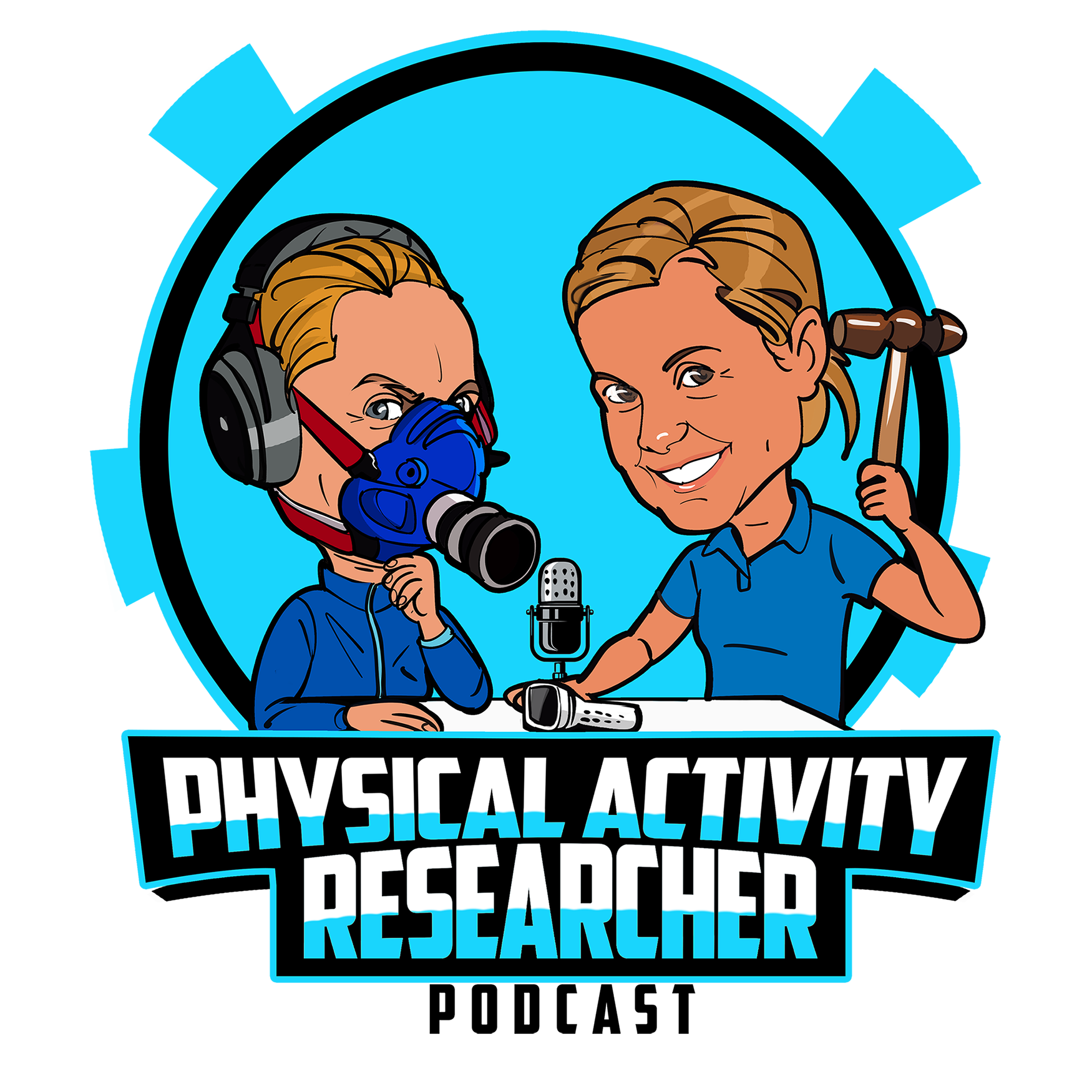
Hello and Welcome to Physical Activity Researcher Podcast!
Physical Activity Researcher Podcast is the source of the latest research findings on all things related to physical activity, exercise, and health. World-renowned scientists and experts as guests in an informal and relaxed interview style format. The podcast is for anyone who likes to learn scientific and evidence-based knowledge of physical activity, exercise, and health.
Physical Activity Researcher Series
The latest research findings in exercise physiology, physical education, coaching sciences, sport psychology, epidemiology, and public health.
Meaningful Sport Series
Meaningful Sport is dedicated to the exploration of meaning and meaningful experiences in sport and physical activity.
Practitioner’s Viewpoint Series
Practitioner’s Viewpoint Series has health and fitness professionals as guests. This series is for you if you are a Personal Trainer, Physiotherapist, Medical Doctor, Health Coach, or anyone working as a health and fitness professional.

Podcast brought to you by
Fibion
Fibion is the new gold standard for sedentary behaviour and physical activity data collection for researchers. Cloud-based modern solutions make data collection easier than it has never been.
---
Fibion Pro is the first physical activity analysis product targeted from the beginning for health and fitness professionals. It is accurate and easy to use in connection with professional consultation meetings.
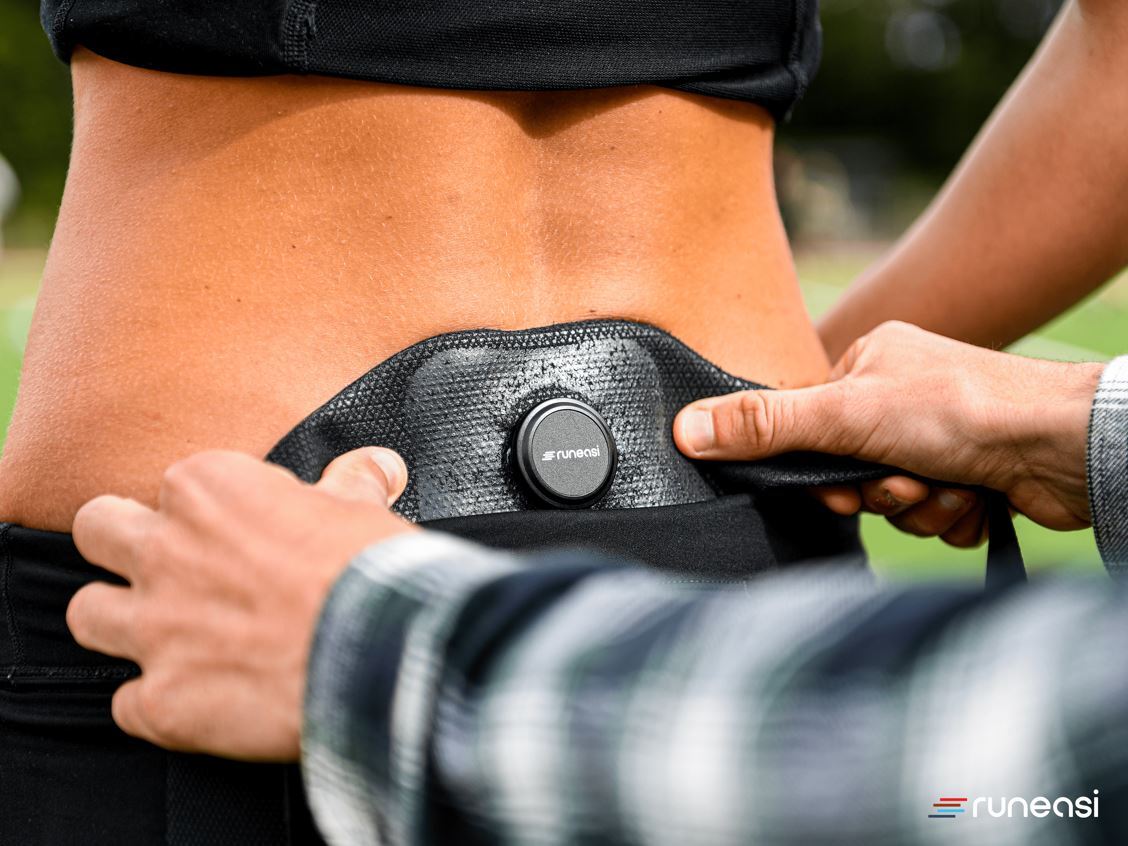
Practitioner's Viewpoint Series Brought to You by
Runeasi
Enabling value-based gait analysis for athletes with musculoskeletal conditions.
1. ASSESS
Runeasi’s real-time functionality gives you immediate and objective visual feedback about how well your patients are moving. Hence, you can immediately identify problem areas, weak links, or poor running technique.
2. ANALYZE
Test your verbal cues out on your patients as you guide them through rehabilitation and return to play/sport. Correct with confidence and surety in knowing what works for them.
3. ADDRESS
Help your patients emerge stronger than ever by giving personalized feedback on important technical parameters like impact asymmetry. Runeasi will help you improve your patients running technique and their ability to achieve your sporting goals!
Learn more: https://runeasi.ai
Book a free demo: https://calendly.com/runeasi/30min






